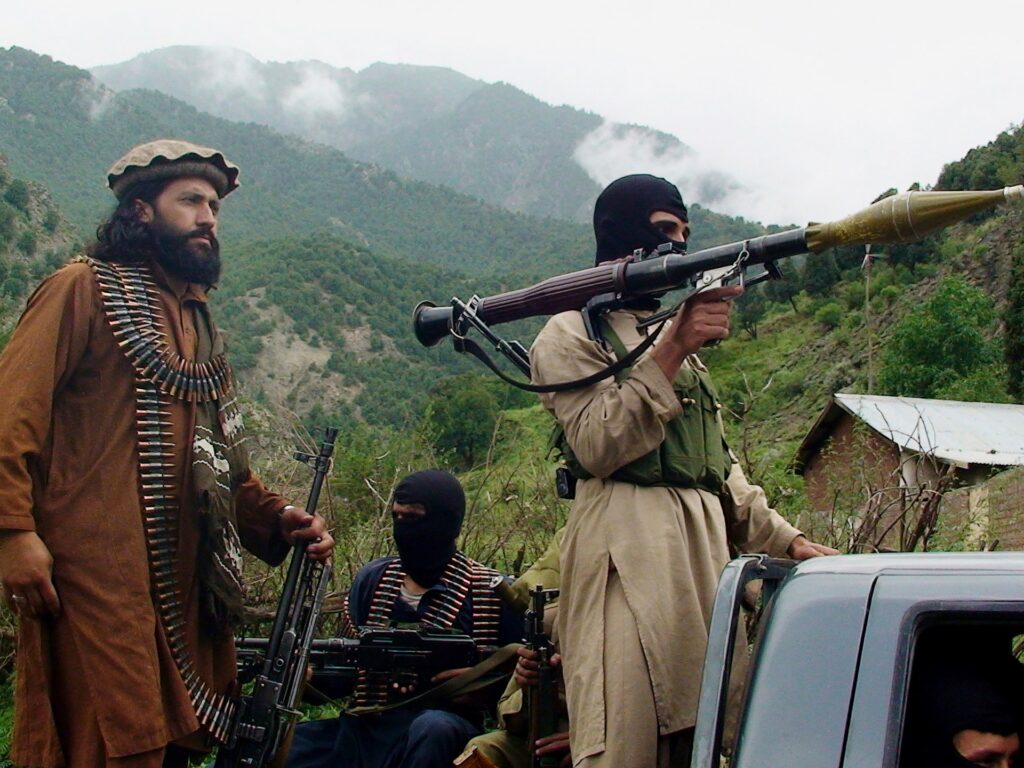ISLAMABAD, Pakistan – The Pakistan Taliban, known by its acronym TTP, has issued a warning to Pakistan’s military, saying it will continue to target security personnel and expand attacks on the military’s business interests.
In a statement released on Sunday, the TTP pledged to go after various commercial enterprises run by Pakistan’s military.
Among the companies named by the group was Rawalpindi-based logistics company National Logistics Cell. Frontier Works organization specializing in engineering and construction. Faji Fertilizer Company, fertilizer manufacturer. Military housing authorities across Pakistan. commercial bank. and several other entities.
The Pakistani Taliban has warned civilians to leave military-run organizations within three months and urged employees of these companies to find alternative sources of income.
The military has not yet issued any response to the Pakistani Taliban’s statement. Al Jazeera also contacted the military’s media arm, the Inter-Services Public Relations Service (ISPR), but did not receive a response.
Premonition of retribution?
TTP’s warning comes amid rising tensions between Pakistan and Afghanistan over the group’s activities.
Last month, Pakistan’s military launched airstrikes targeting suspected militant hideouts in Afghanistan.
Pakistan has accused the Taliban, who have ruled Afghanistan since August 2021, of providing safe haven to TTP fighters and enabling cross-border attacks on law enforcement personnel inside Pakistan. . The Afghan Taliban deny these allegations.
The Pakistani Taliban are ideologically aligned with the Afghan Taliban. It was founded in 2007 during the United States’ so-called “war on terror,” and has waged an insurgency against the Pakistani state for more than a decade.
The group’s demands include the imposition of strict Islamic law, the release of imprisoned members, and the reversal of the merger of Pakistan’s tribal areas with Khyber Pakhtunkhwa province.
TTP activity in Pakistan has skyrocketed dramatically since the Taliban took power in Kabul, killing nearly 1,000 people, mostly security personnel, in 2023.
Violence continues in 2024, with the Center for Research and Security Studies (CRSS), an Islamabad-based think tank, describing it as the deadliest year in nearly a decade.
According to the CRSS, 2,526 people were killed in attacks last year, including nearly 700 security personnel, more than 900 civilians and about 900 armed combatants. These deaths are the highest in nine years and exceed the previous record of 2,432 deaths in 2016.
Imtiaz Gul, Director-General of CRSS, warned that the Pakistani Taliban’s warnings should not be ignored.
“They are fully aware that the Pakistani army is the linchpin against them in this fight, and their aim is to damage the army and undermine its interests,” Gul told Al Jazeera.
Sweden-based security researcher Abdul Saeed said the Pakistani Taliban’s statement signaled a “significant policy shift” in the group’s strategy.
“Since July 2018, under TTP leader Mufti Noor Wali Mehsud, a policy has been put in place primarily to limit attacks on security forces. , there were also civilian casualties, which likely prompted hardliners within the group to modify this approach,” Saeed told Al Jazeera.

TTP and Pakistan’s political divide
The timing of the Pakistani Taliban’s statements may coincide with an escalation of military operations, including one launched last June, but analysts say the group is exploiting political divisions in the country. suggests.
Kamal Cheema, an international affairs expert and executive director of the Sanover Institute, said known supporters of Pakistan’s popular opposition party, Pakistan Tehreek-e-Insaf (PTI), have recently boycotted military products. He pointed out that he is promoting a social media campaign. run a business.
The PTI, led by former Prime Minister Imran Khan, accused the military of colluding with the United States and political opponents to plot his ouster from power in April 2022.
Mr. Khan, who has been imprisoned since August 2023, and his supporters have remained critical of the military since his ouster.
After large-scale protests by the PTI in late November, in which 12 party members and supporters were killed, the PTI launched a social media campaign calling on the public to boycott companies associated with the military’s business arm. did. The online campaign gained further momentum after Khan threatened to launch a civil disobedience campaign.
“If the PTI had not politicized state institutions, perhaps the TTP might not have been in a position to consider targeting this sector,” Cheema said.
At a press conference last year, ISPR chief General Ahmed Sharif Chaudhry defended the military’s economic role, saying it had contributed more than 100 billion rupees ($359 million) directly to the national treasury in customs duties and taxes. revealed. He said military-affiliated organizations paid an additional 260 billion rupees ($934 million) in taxes.
Researcher Saeed said the Pakistani Taliban are trying to take advantage of this divided political climate, where the military is regularly under criticism.
A return to urban violence?
After being established in 2007, the Pakistani Taliban were responsible for some of the country’s deadliest attacks, including the 2014 Peshawar Army Public School massacre in which more than 130 children were killed.
Analysts fear the group’s new strategy could signal a return to widespread violence, especially in urban areas.
Cheema said the Pakistani Taliban had recently threatened members of the ruling Pakistan Muslim League-Nawaz (PML-N).
“We have seen the TTP target political parties before. However, this indiscriminate targeting of civilians will likely backfire, although it may have the support of the Afghan Taliban.” I believe not,” he said.
CRSS’s Gul suggested that the Pakistani Taliban’s rationale was to pressure the military to stop cross-border attacks into Afghanistan.
“Tensions with the Afghan government stem from Pakistan’s aggressive military strategy of air strikes over the country. The TTP could possibly deter further military incursions by threatening attacks against commercial interests. I’m guessing that’s the case,” he said.
But Saeed believes this policy shift will lead to the spread and scope of conflict into urban areas.
“The main advantage of TTPs is their ability to generate funds, because companies and individuals associated with them often resort to extortion to avoid being targeted,” he said. .



